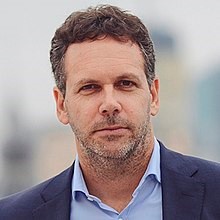Bio
Guido Sandleris is Professor of the Practice at SAIS Europe
Professor of Economics, Universidad Torcuato Di Tella, Argentina
Professor Sandleris was Governor of the Central Bank of Argentina between September 2018 and December 2019. In June 2017 he joined the Argentine Ministry of Economy as Chief of Advisors to the Minster and in June 2018 he was appointed Secretary of Economic Policy.
He was a visiting professor at the London School of Economics (UK), Pontifical Catholic University of Rio de Janeiro (Brazil), and Universidad de Los Andes (Colombia), and a visiting researcher at the Federal Reserve Bank of Minneapolis, the Central Bank of Chile, the Inter-American Development Bank (IDB), and the International Monetary Fund (IMF). He was Director of the Center for Financial Research at the Universidad Torcuato Di Tella (UTDT) where he was also appointed Dean of the Business School between 2014 and 2015.
Sandleris specializes in international economics, macroeconomics and finance, and his academic research focuses on the effect of financial crises. His papers have been published in the
Journal of International Economics, Journal of Monetary Economics, Journal of Money, Credit and Banking, Oxford University Press, and others.
He was a consultant and researcher for the World Bank, the Inter-American Development Bank, and several Latin American governments and investment banks. He has received several scholarships and research grants from the Fulbright Commission, the Central Bank of Argentina, the World Bank, Columbia University, and LACEA.
He holds a PhD in Economics from Columbia University, a Master’s degree in Economics from the London School of Economics, and a degree in Economics from Universidad de Buenos Aires (UBA).
Courses
- Essentials of International Economics II
The course examines key concepts in the areas of Macroeconomics and International Monetary Theory relevant for understanding issues in international affairs. Macro concepts include macro measurement, aggregation, economic growth, inflation, business cycles, government policies to influence the economy, the banking system and interest rates and bond markets. International Monetary concepts include balance of payments, exchange rates, international monetary system, capital flows, and global financial crises. The course is conceptual in nature and requires only basic math skills. Students taking the Essentials International Economics core will not be eligible to take most economic elective classes.
Prerequisites: Students may not register for this class if they have already received credit for SA.100.304[C]
- International Economics II
Covers the basic theory underlying international macroeconomics. Topics include international financial markets and the macroeconomics of open economies; balance of payments and the trade balance; exchange rates and the foreign exchange market; expectations, interest rates and capital flows; monetary and fiscal policy in open economies; exchange rate regimes; and macroeconomic policy in open economies. Basic algebra will be used in this class. This course is a prerequisite to most upper-level economics courses.
Prerequisites: Students may not register for this class if they have already received credit for SA.100.302[C]
